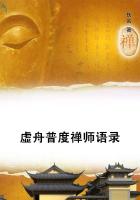They would organize labor; that is, they would guarantee labor to the workingman, and give him a share in the profits,--the abolition of property.
Now, these same radicals are zealous defenders of property,--a radical proof that they know not what they do, nor what they wish.
3.Since property is the grand cause of privilege and despotism, the form of the republican oath should be changed.Instead of, "I swear hatred to royalty," henceforth the new member of a secret society should say, "I swear hatred to property."SEVENTH PROPOSITION.
Property is impossible, because, in consuming its Receipts, it loses them; in hoarding them, it nullifies them; and in using them as Capital, it turns them against Production_.
I.If, with the economists, we consider the laborer as a living machine, we must regard the wages paid to him as the amount necessary to support this machine, and keep it in repair.The head of a manufacturing establishment--who employs laborers at three, five, ten, and fifteen francs per day, and who charges twenty francs for his superintendence--does not regard his disbursements as losses, because he knows they will return to him in the form of products.Consequently, LABOR and REPRODUCTIVECONSUMPTION are identical.
What is the proprietor? He is a machine which does not work; or, which working for its own pleasure, and only when it sees fit, produces nothing.
What is it to consume as a proprietor? It is to consume without working, to consume without reproducing.For, once more, that which the proprietor consumes as a laborer comes back to him; he does not give his labor in exchange for his property, since, if he did, he would thereby cease to be a proprietor.In consuming as a laborer, the proprietor gains, or at least does not lose, since he recovers that which he consumes; in consuming as a proprietor, he impoverishes himself.To enjoy property, then, it is necessary to destroy it; to be a real proprietor, one must cease to be a proprietor.
The laborer who consumes his wages is a machine which destroys and reproduces; the proprietor who consumes his income is a bottomless gulf,--sand which we water, a stone which we sow.So true is this, that the proprietor--neither wishing nor knowing how to produce, and perceiving that as fast as he uses his property he destroys it for ever--has taken the precaution to make some one produce in his place.That is what political economy, speaking in the name of eternal justice, calls PRODUCING BY HIS CAPITAL,--PRODUCING BY HIS TOOLS.And that is what ought to be called PRODUCING BY A SLAVE--PRODUCING AS ATHIEF AND AS A TYRANT.He, the proprietor, produce!...The robber might say, as well: "I produce."The consumption of the proprietor has been styled luxury, in opposition to USEFUL consumption.From what has just been said, we see that great luxury can prevail in a nation which is not rich,--that poverty even increases with luxury, and vice versa.The economists (so much credit must be given them, at least) have caused such a horror of luxury, that to-day a very large number of proprietors--not to say almost all--ashamed of their idleness--labor, economize, and capitalize.They have jumped from the frying-pan into the fire.
I cannot repeat it too often: the proprietor who thinks to deserve his income by working, and who receives wages for his labor, is a functionary who gets paid twice; that is the only difference between an idle proprietor and a laboring proprietor.
By his labor, the proprietor produces his wages only--not his income.And since his condition enables him to engage in the most lucrative pursuits, it may be said that the proprietor's labor harms society more than it helps it.Whatever the proprietor does, the consumption of his income is an actual loss, which his salaried functions neither repair nor justify; and which would annihilate property, were it not continually replenished by outside production.
II.Then, the proprietor who consumes annihilates the product: he does much worse if he lays it up.The things which he lays by pass into another world; nothing more is seen of them, not even the _caput mortuum_,--the smoke.If we had some means of transportation by which to travel to the moon, and if the proprietors should be seized with a sudden fancy to carry their savings thither, at the end of a certain time our terraqueous planet would be transported by them to its satellite!
The proprietor who lays up products will neither allow others to enjoy them, nor enjoy them himself; for him there is neither possession nor property.Like the miser, he broods over his treasures: he does not use them.He may feast his eyes upon them; he may lie down with them; he may sleep with them in his arms: all very fine, but coins do not breed coins.No real property without enjoyment; no enjoyment without consumption; no consumption without loss of property,--such is the inflexible necessity to which God's judgment compels the proprietor to bend.A curse upon property !
III.The proprietor who, instead of consuming his income, uses it as capital, turns it against production, and thereby makes it impossible for him to exercise his right.For the more he increases the amount of interest to be paid upon it, the more he is compelled to diminish wages.Now, the more he diminishes wages,--that is, the less he devotes to the maintenance and repair of the machines,--the more he diminishes the quantity of labor; and with the quantity of labor the quantity of product, and with the quantity of product the very source of his income.















